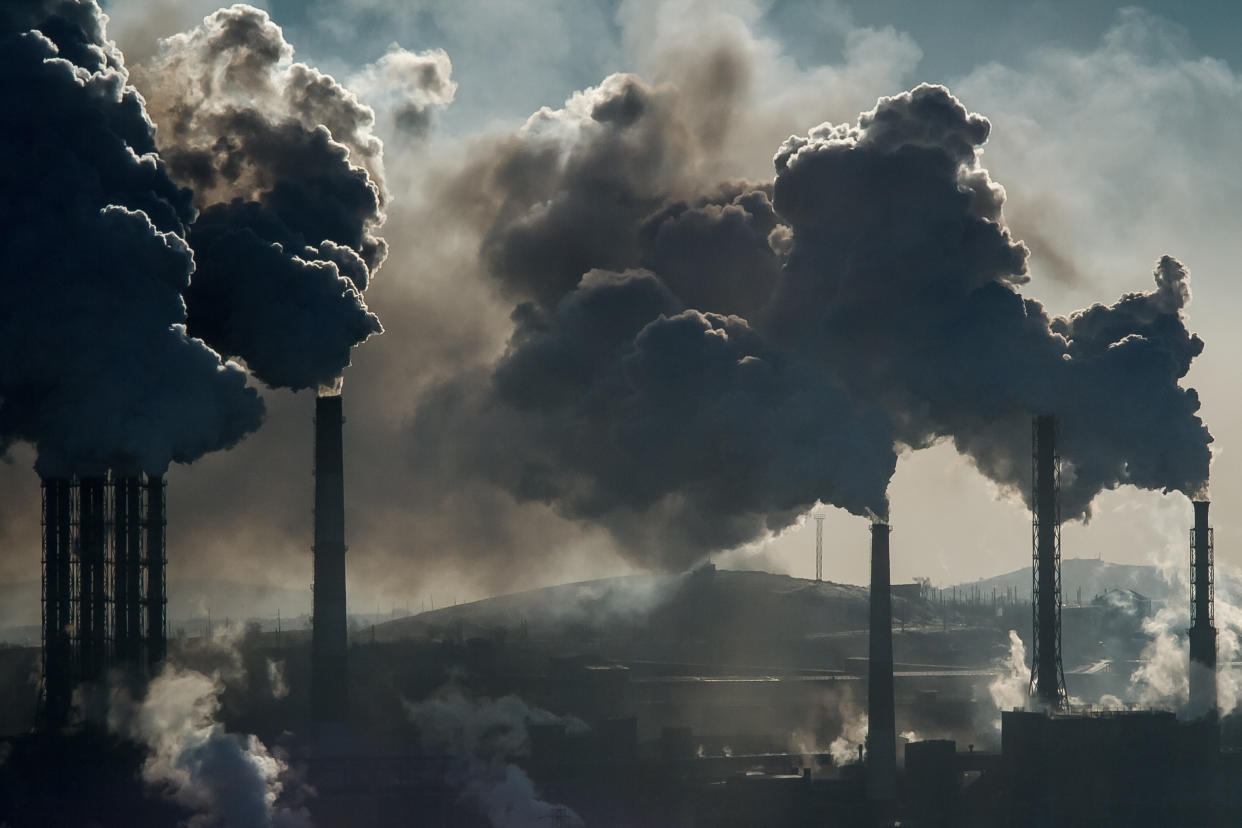Coronavirus: Is there really a link between pollution and COVID-19 deaths?

Two studies this week have seemed to suggest that higher air pollution could be linked to increased coronavirus infections and deaths.
But some experts hit back at the findings, suggesting they merely show that highly populated areas have lots of virus deaths.
One British study by the Medical Research Council Toxicology Unit at Cambridge University compared COVID-19 cases and deaths against levels of three major air pollutants in UK regions.
The study, which has not yet been peer-reviewed, found that areas with high levels of pollutants such as nitrogen dioxide (found in car exhaust fumes) also had high numbers of deaths from the virus.
Latest coronavirus news, updates and advice
Live: Follow all the latest updates from the UK and around the world
Fact-checker: The number of COVID-19 cases in your local area
6 charts and maps that explain how coronavirus is spreading
Another Harvard study found that levels of PM2.5 – microscopic particles in the air linked to burning fossil fuels – were also correlated with coronavirus deaths.
But other experts said disease transmission and death would be expected to be higher anyway in highly populated areas such as London, which also have higher air pollution.
Dr Graham Wheeler, Medical Statistician at UCL, said: “This work does not account for population density.
“Therefore, the results are not surprising: areas with higher pollution have more people in them, and with more people in an area, more COVID-19 cases are likely to be reported.”
“For some of these correlations, there is weak evidence to suggest there is a genuine association between air pollution levels and COVID-19 cases or deaths.
“The data from the London region appear to have a big effect on these correlations too; with this data point removed, much weaker correlations would likely be reported.”
Read more: Dying Mum’s plea for life-prolonging treatment to see her through coronavirus
Previous studies have pointed to a higher risk for older people or those with underlying health conditions including cardiovascular disease, diabetes, chronic respiratory disease and cancer.
Long-term exposure to air pollutants from car exhaust fumes or burning fossil fuels can put people at risk of these health conditions, and can also increase the risk of infection by viruses that affect people’s airways.
Other experts were even more scathing about the research, describing it as of “low quality”.
Read more: Coronavirus shows how vulnerable societies are, says Greta Thunberg
Dr Tony Fletcher, associate professor in environmental epidemiology at the London School of Hygiene and Tropical Medicine, said: “It is certainly plausible that air pollution could exacerbate respiratory disease and mortality due to COVID, either because of pollution having caused relevant pre-existing disease or by pollution affecting exposure due to viral particles attaching to particulate matte.
“However, this paper is of low quality and does not provide evidence of such an association.
“They carry out a crude ecological comparison with no adjustment for any other relevant factors – not only population is ignored, but age, socioeconomic status, mobility, and any other factor affecting risk are also excluded.
“Of course, London has the most cases, as well as the largest population and highest NO2 levels – and it drives the association they find.”
Coronavirus: what happened today

 Yahoo News
Yahoo News 


